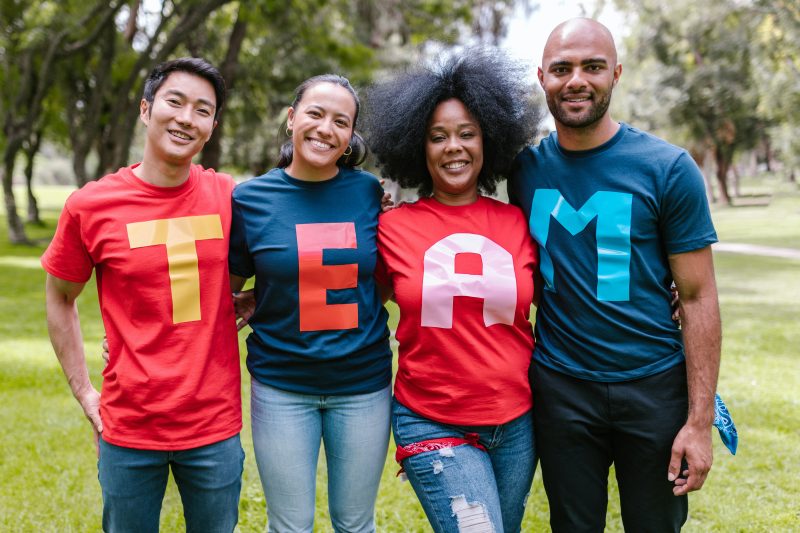Last Updated on: 14th December 2023, 06:09 pm
In the modern business world, cultivating a positive work environment and nurturing team cohesion is imperative for the success of any organisation. Team-building events present an excellent opportunity to fortify interpersonal relationships, enhance communication, and elevate morale among employees. The planning of an effective team-building event requires meticulous consideration and thoughtful execution. Here’s what’s involved in planning a successful team-building event for your employees, ensuring a harmonious and motivated workforce.
Step 1: Define Objectives and Outcomes
Before delving into the planning process, it is important to clearly define the objectives and expected outcomes of the team-building event. Consider what specific issues or challenges your team is facing and how the event can address those concerns. Whether it is improving communication, fostering creativity or enhancing problem-solving skills, having a clear set of goals will guide the entire planning process.
Step 2: Know Your Team
Understanding the dynamics of your team is paramount when planning a team-building event. Think about the size of your team, their interests and the existing relationships among team members. Are they a newly formed team, or have they been working together for a while? Making the event super relevant to the specific needs and preferences of your team will ensure maximum engagement and participation.
Step 3: Budgeting and Resources
Establishing a budget for the team-building event is a fundamental step in the planning process. Consider expenses such as venue rental, catering, transportation and any additional materials or activities. Be mindful of the financial constraints of your organisation and allocate resources wisely. Remember that team-building doesn’t have to be expensive; there are plenty of cost-effective options that can deliver meaningful results.
Step 4: Choose the Right Venue
The venue sets the tone for the entire team-building experience. Whether it’s a retreat in nature under the guise of corporate festivals, a conference room in the office or an offsite location, the venue should align with the objectives of the event. Ensure that the space is conducive to team activities, has the necessary amenities and allows for a comfortable and relaxed atmosphere that encourages open communication.
Step 5: Team-Building Activities
Selecting the right team-building activities is the heart of the event. The activities should be engaging, relevant to the team’s goals and provide opportunities for collaboration and problem-solving. Some popular options include trust-building exercises, problem-solvingchallenges and team-based competitions. Remember to incorporate a mix of activities that cater to different personalities and preferences within the team.
Step 6: Facilitation and Expert Guidance
While some team-building activities may be self-directed, having a facilitator or expert guide can significantly enhance the overall experience. Professionals skilled in team dynamics can provide valuable insights, offer constructive feedback and ensure that the activities align with the desired outcomes. Facilitators can also help create a safe and inclusive environment, fostering open communication and trust among team members.
Step 7: Schedule and Timing
Carefully plan the schedule and timing of the team-building event. Consider the daily routines of your team and choose a time that minimises disruption to regular work activities. Whether it’s a half-day retreat, a full-day workshop or a weekend getaway, ensure that the schedule allows for a balance between structured activities and informal time for team members to connect on a personal level.
Step 8: Communication and Preparation
Effective communication is key to the success of any team-building event. Clearly communicate the objectives, schedule and expectations to all participants well in advance. Provide any necessary pre-event materials or instructions to ensure that everyone comes prepared. Address any concerns or questions from team members and create a sense of anticipation for the upcoming event.
Step 9: Evaluation and Follow-Up
After the team-building event concludes, take the time to evaluate its success. Gather feedback from participants through surveys or informal discussions. Assess whether the objectives were met and identify areas for improvement. Use the insights gained to inform future team-building initiatives and demonstrate a commitment to continuous improvement.
Step 10: Celebrate Success
Acknowledge and celebrate the success of the team-building event. Recognise individual and collective achievements, and highlight positive changes in team dynamics. A post-event celebration not only reinforces the positive outcomes but also creates a sense of accomplishment and camaraderie among team members.
Planning a team-building event requires meticulous consideration and a strategic approach. By defining objectives, understanding your team, budgeting wisely, choosing the right venue, incorporating engaging activities and facilitating the event effectively, you can create a meaningful experience that strengthens team cohesion and boosts morale. Remember that team-building is an ongoing process, and regular initiatives will contribute to a positive and collaborative work culture. Investing in your team’s well-being is an investment in the success and longevity of your organisation.



